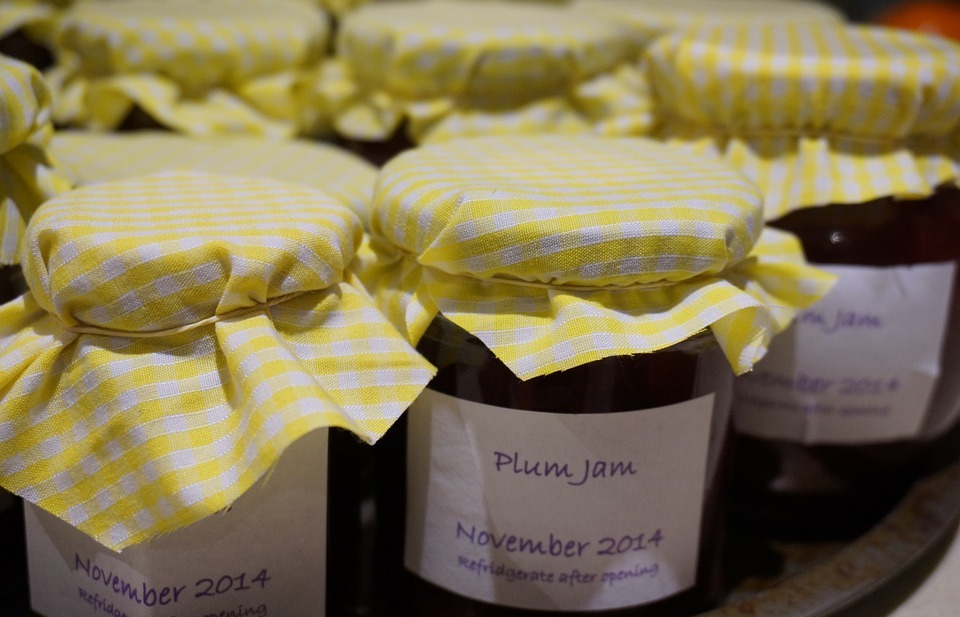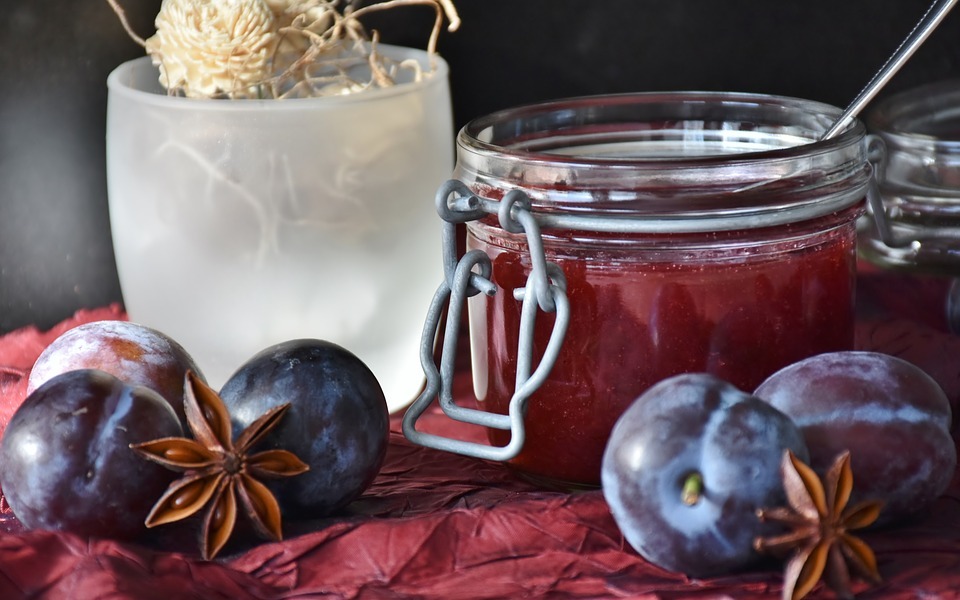This comprehensive guide delves into the complexities of feeding plums to rabbits, exploring the nutritional benefits, potential risks, and safe alternatives. We’ll also cover the importance of a balanced diet, address common misconceptions, and provide answers to frequently asked questions.
Part 1: The Nutritional Value of Plums

1.1. Vitamins and Minerals
Plums are a good source of essential vitamins and minerals. They contain vitamin C, crucial for immune function and collagen production; vitamin K, vital for blood clotting; and potassium, which helps regulate blood pressure and muscle function. Plums also provide a decent amount of fibre, which promotes digestive health.
1.2. Antioxidants
Plums are rich in antioxidants, which help protect cells from damage caused by free radicals. These antioxidants may play a role in reducing the risk of chronic diseases.
Part 2: The Risks of Feeding Plums to Rabbits

2.1. Sugar Content
Plums are naturally high in sugars, particularly fructose. While this sweetness may be appealing to humans, it poses a significant risk for rabbits. Their digestive systems are not designed to process large amounts of sugar, which can lead to:
Weight gain: Excess sugar contributes to obesity, which can lead to other health issues.
Dental problems: The sugars in plums can promote plaque buildup, leading to dental disease.
Digestive issues: High sugar intake can upset the delicate balance of bacteria in a rabbit's gut, causing diarrhoea, gas, and other digestive problems.
2.2. Acidity
Plums are acidic fruits, and their acidity can irritate a rabbit's sensitive digestive system. This can lead to diarrhoea, vomiting, and other digestive upset.
2.3. Toxicity
The pit and leaves of plums contain cyanide, a toxic compound that can be fatal to rabbits. Even small amounts can cause serious health problems, including:
Respiratory distress: Cyanide interferes with oxygen transport in the blood, leading to difficulty breathing.
Cardiovascular problems: Cyanide can disrupt heart function, leading to arrhythmias and even cardiac arrest.
Seizures: In severe cases, cyanide poisoning can cause seizures and coma.
Part 3: Alternatives to Plums: Safe Fruits for Rabbits
3.1. Fruits to Offer in Moderation
Apples: Offer a small slice, without the core and seeds. Choose varieties with lower sugar content.
Bananas: A tiny piece, due to their high sugar content. Consider ripeness as unripe bananas are more acidic.
Berries: Strawberries, raspberries, and blueberries are good choices, but offer only a few at a time.
Mango: A small piece of mango is acceptable, avoiding the skin and pit. Ensure it's ripe for easier digestion.
Melon: A tiny piece of cantaloupe or watermelon is fine, but choose the flesh without the rind.
Peaches: A small slice of peach without the pit is okay, but avoid the skin. Offer ripe peaches for better digestion.
3.2. Fruits to Avoid Completely
Citrus Fruits: Oranges, lemons, grapefruits, and limes are acidic and can cause digestive problems.
Grapes and Raisins: These fruits are toxic to rabbits, regardless of size or ripeness.
Avocado: Avocados contain persin, a toxin that can be fatal to rabbits.
Cherries: The stems, leaves, and pits of cherries are toxic to rabbits.
Peaches and Nectarines: While small portions of the flesh are acceptable, the pits and leaves are toxic.
Stone Fruits: Apricots, plums, and peaches belong to this group, and their pits are particularly toxic. Avoid giving any part of these fruits to rabbits.
Part 4: Safe Ways to Introduce Fruits to Your Rabbit
4.1. Start Small and Observe
When introducing any new fruit, start with a tiny piece, no larger than a pea. Monitor your rabbit closely for any signs of digestive upset, such as diarrhoea, gas, lethargy, or loss of appetite.
4.2. Gradual Increase
If your rabbit tolerates the fruit well, you can slowly increase the portion size over time. However, keep in mind that fruits should only be offered as a treat, not as a staple part of the diet.
4.3. Freshness is Key
Always offer fresh fruit to your rabbit, as spoiled or rotten fruit can be harmful. Choose fruits that are ripe but not overripe, as they are easier for rabbits to digest.
Part 5: The Importance of a Balanced Diet
5.1. Hay as a Staple
Hay should form the foundation of your rabbit's diet. It provides essential fibre, which helps with digestion and prevents dental problems. Offer a variety of hay types, such as Timothy hay, oat hay, and meadow hay.
5.2. High-Quality Pellets
High-quality rabbit pellets should be offered in moderation. Choose pellets that are low in sugar and fat, and that contain high-quality ingredients.
5.3. Fresh Vegetables
A variety of leafy greens and vegetables should be provided daily. This will provide your rabbit with essential vitamins, minerals, and antioxidants.
Part 6: Common Misconceptions about Feeding Rabbits
6.1. Dried Fruit
Dried fruits are extremely high in sugar and should be avoided. The dehydration process concentrates the sugar content, making it even more harmful to rabbits.
6.2. Fruit Juices
Fruit juices are also high in sugar and should not be given to rabbits. The liquid form of sugar is even more rapidly absorbed into the bloodstream, increasing the risk of health problems.
6.3. "Healthy" Fruit Options
Don't be fooled by marketing claims of "healthy" fruit options. Even "low-sugar" fruits can contain significant amounts of sugar, and some may have additives or preservatives that are harmful to rabbits.
Part 7: FAQs about Feeding Fruits to Rabbits
7.1. Can Baby Rabbits Eat Fruit?
Baby rabbits under 12 weeks old should not eat fruit. Their digestive systems are still developing, and they are more susceptible to digestive problems.
7.2. What Happens If My Rabbit Eats a Plum Pit?
Plum pits contain cyanide, which is toxic to rabbits. If your rabbit ingests a pit, seek immediate veterinary attention. Signs of cyanide poisoning include difficulty breathing, rapid heart rate, seizures, and coma.
7.3. How Often Can I Give My Rabbit Fruit?
Fruits should be offered as a treat, no more than a couple of times a week.
7.4. What are the Signs of Fruit Toxicity in Rabbits?
Signs of fruit toxicity in rabbits include:
Lethargy: Loss of energy and decreased activity.
Diarrhoea: Loose or watery stools.
Gas: Excessive bloating or flatulence.
Loss of appetite: Refusal to eat.
Abdominal pain: Signs of discomfort or tenderness in the abdomen.
Weight loss: Noticeable decrease in body weight.
7.5. Is it Safe to Give My Rabbit Homemade Fruit Treats?
Homemade fruit treats can be risky, as they may contain added sugars, sweeteners, or other ingredients that are harmful to rabbits. Stick to fresh, whole fruits and offer them in moderation.
Part 8: Conclusion
While plums offer some nutritional benefits, their high sugar content, acidity, and toxicity make them a risky treat for rabbits. A balanced diet of hay, pellets, and fresh vegetables is essential for your rabbit's health and well-being. If you choose to offer fruits, choose safe options and do so in moderation. Always consult your veterinarian if you have any concerns about your rabbit's diet.
Everyone is watching
-

Do Rabbits Lay Eggs? (The Surprising Truth)
OTHER TYPES OF PETSThis article will unravel the common misconception that rabbits lay eggs, exploring the fascinating world of r...
-

Can Rabbits Eat Grapes? A Guide to Safe Rabbit Treats
OTHER TYPES OF PETSThis comprehensive guide will explore the safety and suitability of grapes for rabbits, providing detailed inf...
-

What's a Group of Rabbits Called? (A Comprehensive Guide)
OTHER TYPES OF PETSThis article delves into the fascinating world of rabbits, exploring the various terms used to describe a grou...
-

Predators That Hunt Rabbits: A Guide to Natural Enemies
OTHER TYPES OF PETSI've always been fascinated by the circle of life, that delicate dance between predator and prey. Growing up ...
-

Are Rabbits Nocturnal Animals?
OTHER TYPES OF PETSThe question of whether rabbits are nocturnal animals is a fascinating one, with a surprisingly complex answer...
